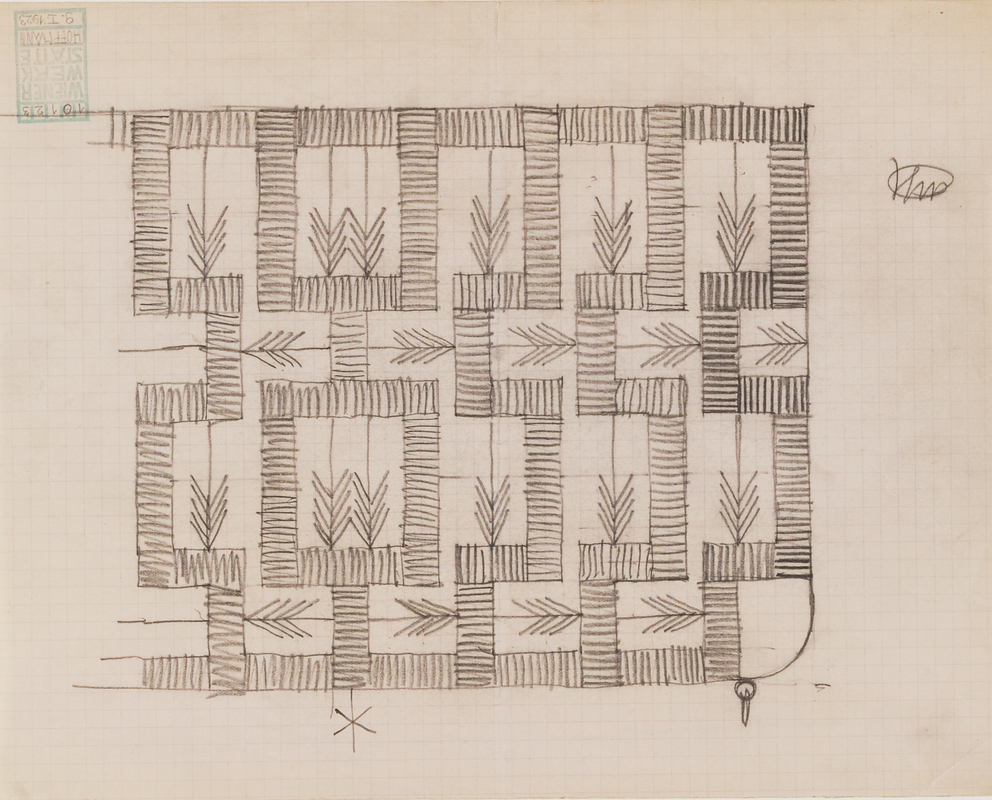
Leopold Museum,
Vienna
Vienna


Design for a (Hand)Bag
9th Jan. 1923
(Pirnitz 1870–1956 Vienna)
If you have further information on this object, please contact us.
For provenance related information, please contact us.
2023/2024 Partial funding for digitization by the Federal Ministry for Arts, Culture, the Civil Service and Sport „Kulturerbe digital“ as part of NextGenerationEU.

